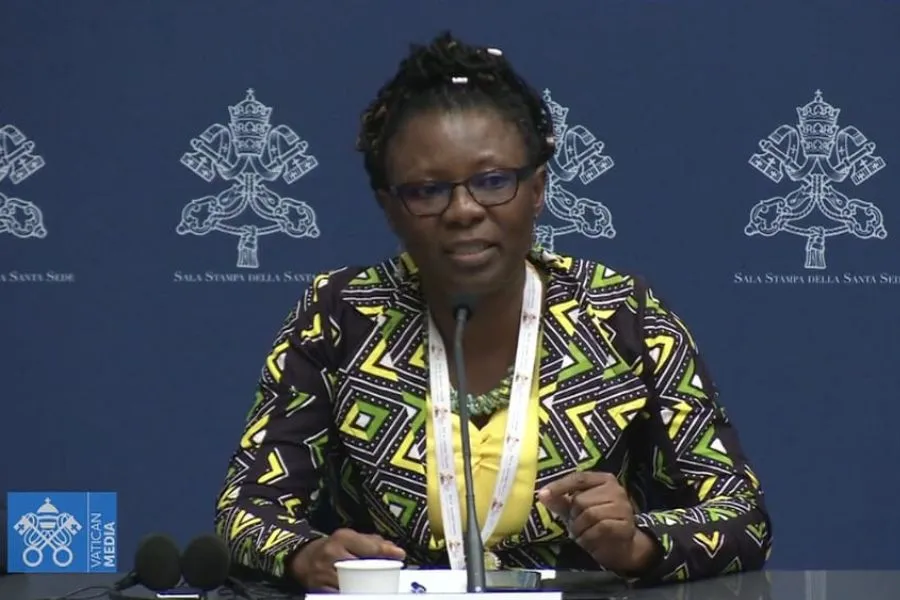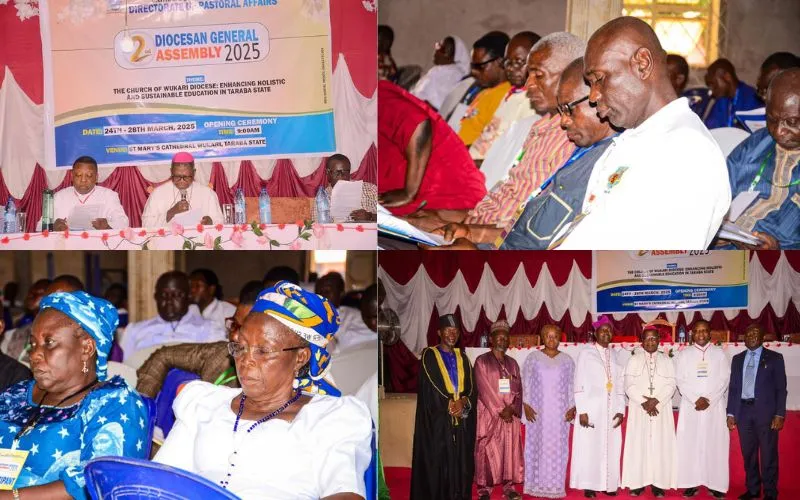In a Wednesday, October 25 press briefing by Synod delegates, the Catholic don shared the joy of being “listened to” while she had groundbreaking conversations with leaders of the Church meeting in Rome.
“I felt listened to as a lay person, as a woman and an African in a Church that most often has not given that voice; a Church that has not had a chance to enrich itself with voice and wisdom from women, from lay people and from Africans,” Dr. Nonterah said.
She expressed gratitude at her selection to participate in the Synod on Synodality conversations, noting that she traveled to Rome carrying the experiences of those in the peripheries.
“I come to this synod with unique existential experiences. I am one of the two African lay women in this synod. I am also one of the few female African theologians. This is my first time participating in a synod,” the Catholic don said.
She added, “I come to this synod with the hopes, the joys, the dreams, the anxieties, the lamentations, but also the resilience of the African women, lay people from the continent, and in fact the entire Church that might not always get to sit at the centre of discourse.”
She noted that the Synodal conversations in Rome had been to her, a space of encounter of diversity and “relationality with individuals, traditions, cultures and an encounter with the Holy Spirit.”
“Within this context of encounter, what I found very inspiring is that you can have deep conversations with people of different backgrounds. We have cardinals, Bishops, priests, religious men and women, lay people from different professions sharing a table to discuss and have deep conversations on issues that are important to all of us,” Dr. Nonterah said.
The Catholic Theologian believes that the “renewal” of the Church lies in the inclusion of lay women, especially those in the Global South.
“From these existential peripheries of mine, I have become so convinced in these days that a Synodal Church must be willing to sit at the feet of women especially lay women who are from the global South to learn how to renew the Church’s imagination, an imagination oriented to the Holy Spirit who mediates abundance of life for all,” Dr. Nonterah said.
She added, “Inspired by the significance of the maternal role of Our Lady Mother Mary, I tend to believe that African women can teach the Church how to be a mother for all her children.”








